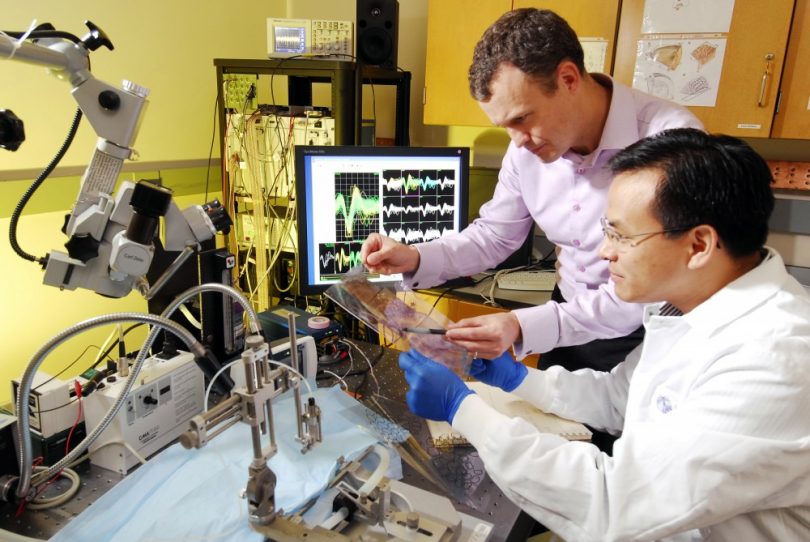Top 20 Biomedical Engineer Fresher Interview Questions
Table of Contents
Top 20 Biomedical Engineer Fresher Interview Questions
1. Can you explain the role of a biomedical engineer?
Example – “Biomedical engineers design and develop medical equipment and devices, such as artificial organs, prostheses, medical imaging devices, and healthcare software. They also work on improving existing healthcare technologies and systems.”
2. What inspired you to pursue a career in biomedical engineering?
Example – “Share your personal motivation, whether it’s a desire to make a positive impact on healthcare, an interest in technology and biology, or a combination of both. Highlight any experiences or mentors that influenced your choice.”
3. How would you handle a situation where a project’s deadline is approaching, but you encounter a technical problem you can’t solve?
Example – “I would first attempt to troubleshoot the issue independently, using available resources and seeking guidance from colleagues if necessary. If the problem persists, I would escalate it to my supervisor or team lead, ensuring clear communication about the issue, the steps I’ve taken, and the potential impact on the project’s timeline.”
4. Describe a project or coursework where you had to work in a team? What was your responsibility, and how did you contribute?
Example – “Discuss a specific project, your role (e.g., team leader, researcher, designer), and how you collaborated with teammates. Mention your contributions to the project’s success, such as problem-solving, communication, or technical skills.”
5. Can you explain the difference between FDA Class I, II, and III medical devices?
Example – “Class I devices are low-risk devices like bandages, while Class II devices are moderate-risk devices like X-ray machines. Class III devices are high-risk, including implants like pacemakers. The classification determines the level of regulatory scrutiny and requirements for market approval.”
6. What software tools or programming languages are you proficient in, and how do they apply to biomedical engineering?
Example – “Mention any relevant software tools (e.g., MATLAB, SolidWorks) and programming languages (e.g., Python, C++) you’re familiar with. Explain how you’ve used them for data analysis, device modeling, or simulation in your coursework or projects.”
7. How do you stay updated with the latest advancements in biomedical engineering and healthcare technology?
Example – “Mention your sources, such as research papers, industry journals, conferences, and online communities. Highlight any relevant workshops, webinars, or seminars you’ve attended to stay current in the field.”
8. Explain a challenging problem you encountered during your academic studies and how you solved it?
Example – “Describe the problem, the steps you took to address it, and the outcome. Emphasize your problem-solving skills, analytical thinking, and persistence in overcoming challenges.”
9. Can you discuss any experience you have with regulatory compliance in biomedical engineering?
Example – “Mention any coursework or projects where you had to consider regulatory requirements (e.g., FDA, ISO standards) in the development of medical devices. Highlight your understanding of the importance of compliance in ensuring patient safety.”
10. What do you think are the key ethical considerations in biomedical engineering?
Example – “Mention ethical principles such as patient privacy, informed consent, and the responsible use of emerging technologies like genetic engineering. Stress the importance of ethical decision-making in designing and developing medical solutions.”
11. How do you prioritize multiple tasks and deadlines when working on a project with competing demands?
Example – “Explain your approach to time management, which may include creating a task list, setting priorities based on project goals, and using tools like Gantt charts or project management software to track progress and deadlines.”
12. Can you describe any experience you have with medical imaging technologies, such as MRI or CT scans?
Example – “Discuss any coursework or projects involving medical imaging, including the principles of image acquisition, processing, and analysis. Highlight any specific contributions you made to enhance image quality or develop algorithms for medical image analysis.”
13. Describe your understanding of risk management in biomedical engineering?
Example – “Explain how risk management involves identifying, assessing, and mitigating potential hazards associated with medical devices. Mention your familiarity with tools like Failure Mode and Effects Analysis (FMEA) and how you’ve applied them in your coursework or projects.”
14. How would you approach a project where you need to innovate and design a new medical device?
Example – “Outline your approach, starting with thorough research and needs assessment, followed by concept development, prototyping, testing, and iterative refinement. Emphasize the importance of user-centered design and collaboration with healthcare professionals.”
15. Can you discuss any experience you have with data analysis or statistical methods in biomedical research?
Example – “Describe any coursework or projects involving data analysis, statistical techniques, or experimental design. Highlight your ability to draw meaningful conclusions from data and its relevance in biomedical research.”
16. How do you handle conflicts or disagreements within a team, especially when working on critical projects?
Example – “Explain your approach to conflict resolution, which may involve open communication, active listening, and seeking compromise. Emphasize your focus on maintaining a positive team dynamic to achieve project goals.”
17. What do you see as the biggest challenges facing the field of biomedical engineering in the coming years?
Example – “Discuss emerging challenges such as the integration of artificial intelligence in healthcare, personalized medicine, and the ethical implications of genetic engineering. Show your awareness of the evolving landscape of biomedical engineering.”
18. Can you give an example of a project where you had to work within budget constraints?
Example – “Describe a project where you had to manage resources efficiently, staying within budget limits. Discuss your strategies for cost-effective design and procurement while maintaining the project’s quality and objectives.”
19. How do you ensure the safety and reliability of a medical device you’ve designed or worked on?
Example – “Explain the importance of rigorous testing, validation, and quality assurance processes in ensuring the safety and reliability of medical devices. Mention any specific testing protocols or standards you’ve followed in your projects.”
20. What are your long-term career goals in biomedical engineering?
Example – “Share your aspirations, whether it’s pursuing advanced degrees, specializing in a specific area (e.g., bioinformatics, tissue engineering), or taking on leadership roles in research or product development. Emphasize your commitment to lifelong learning and contributing to advancements in healthcare technology.”




